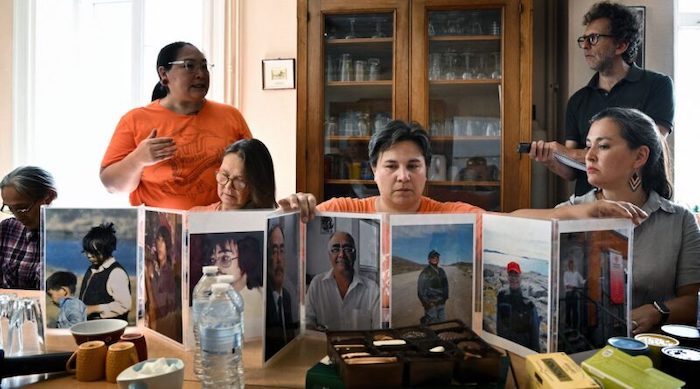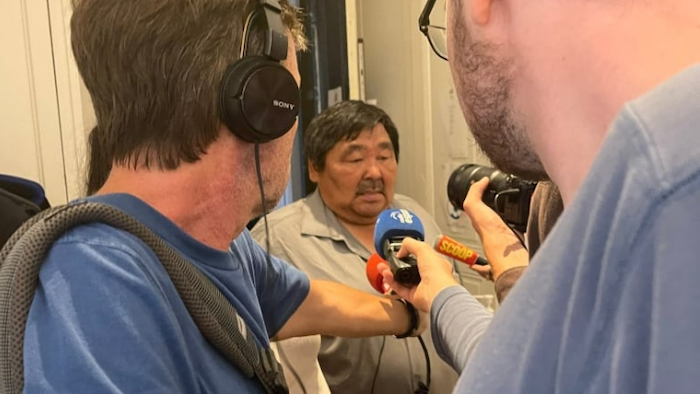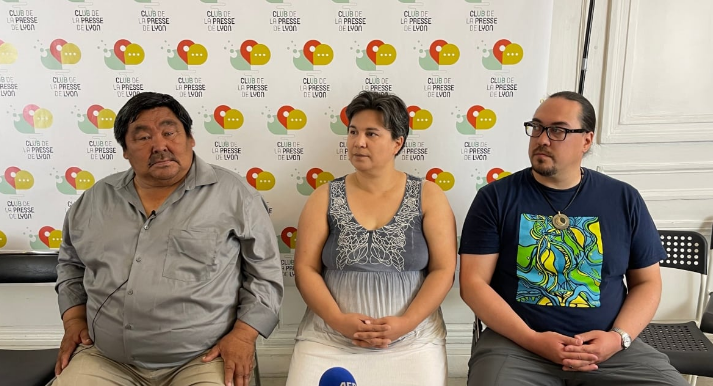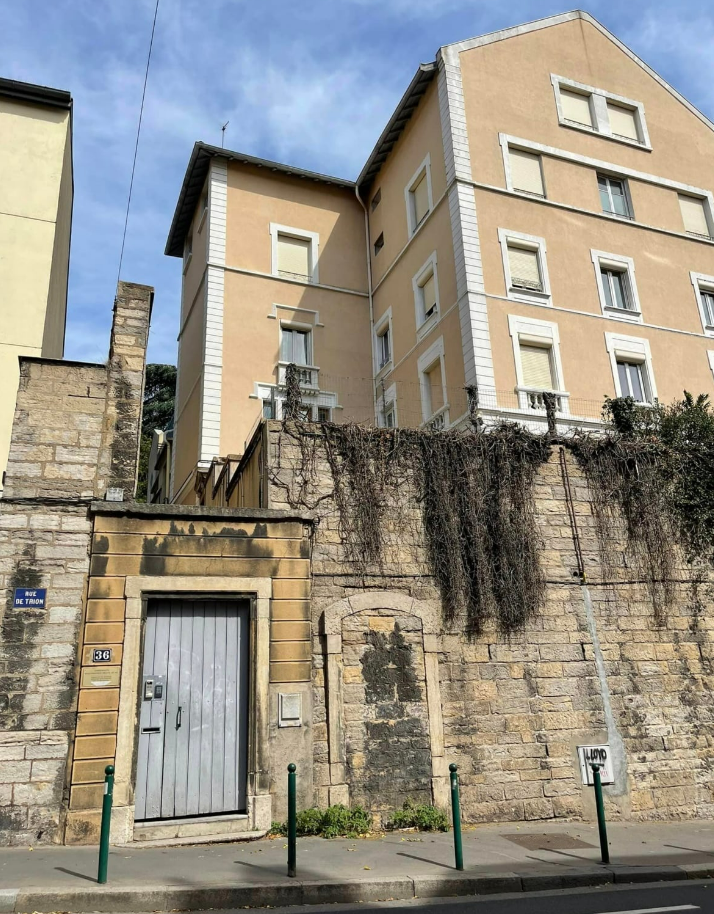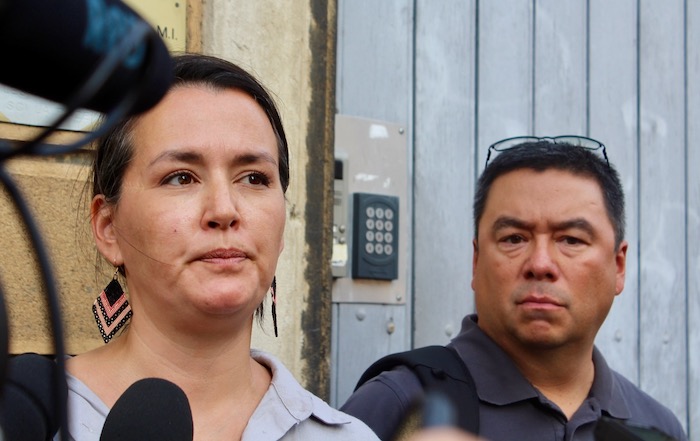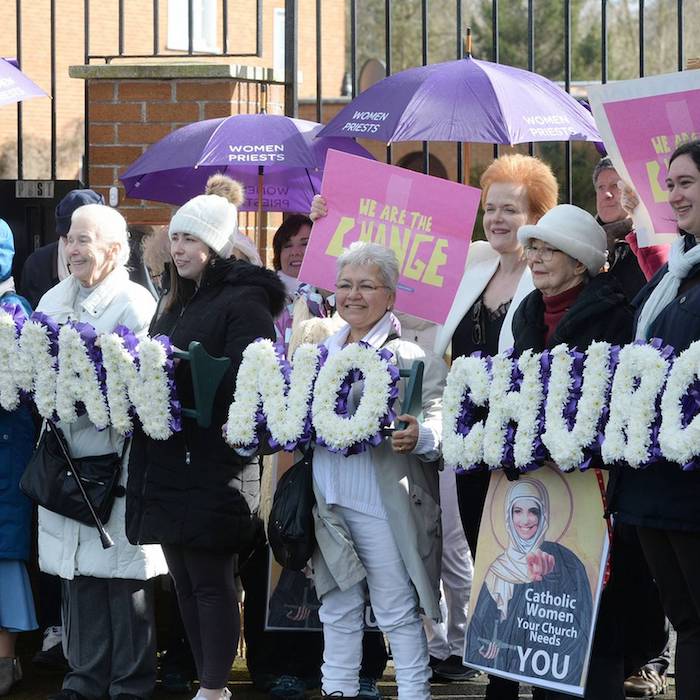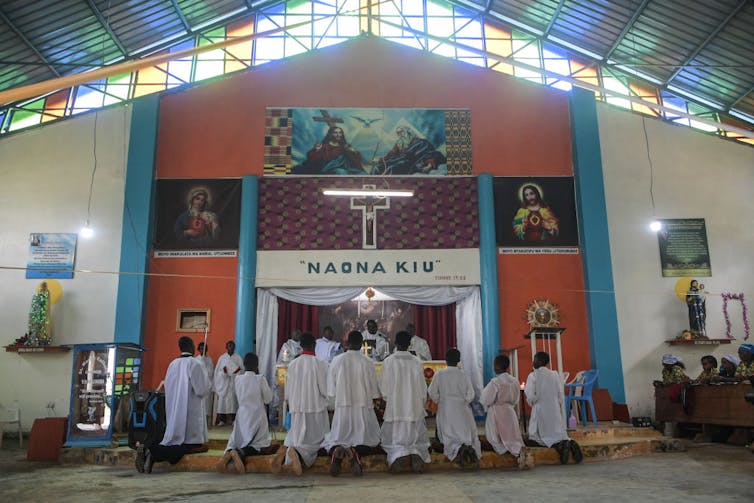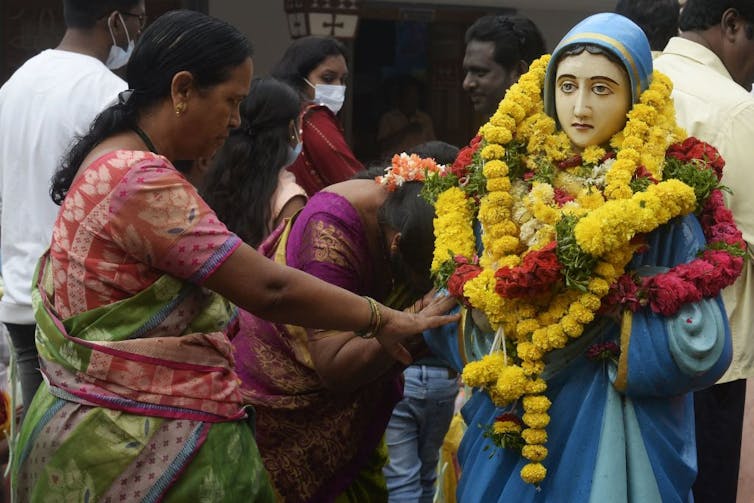Delegates surprised to learn retired priest would be at meeting with Oblates
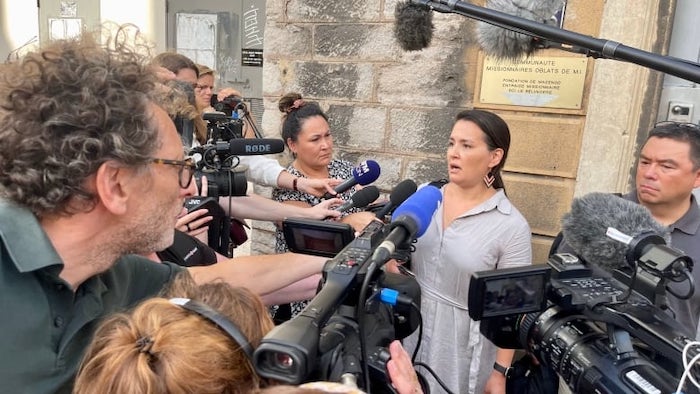
By April Hudson
The delegates have been in France all week to call for the extradition of retired priest Johannes Rivoire, who has been charged in Canada with sexual assault dating back to his time in Nunavut in the 1960s and 1970s.
The meeting with Rivoire was one the delegation had sought, but hadn’t received any word about until they were nearly at their destination in Lyon, France.
Kilikvak Kabloona, the CEO of Nunavut Tunngavik, said delegates were emotional when they heard who would be at the meeting.
“I ask you to respect that this is a very difficult time for the survivors, and they might not be willing to speak with you at this time,” Kabloona told media before the meeting.
“It’s a very difficult situation. We did not have a lot of time to prepare … It’s short notice for such a significant meeting.”

After the meeting, Kabloona said delegates left through a different entrance.
Rivoire appeared to acknowledge and remember some of the delegates, including Steve Mapsalak, Kabloona said, but denied all charges of abuse.
“He is refusing to travel to Canada to face justice because of his skin condition,” she said. Rivoire told APTN in July he has eczema all over his body.
Rivoire worked in many Nunavut communities in the 1960s and 1970s, but returned to France in the early 1990s before he could be tried on abuse charges.
While some charges against him were stayed in 2017, the RCMP confirmed in March that more charges have been laid and they had issued a Canada-wide warrant for his arrest.
Confronting Rivoire in person was ‘worth the whole trip’
After the meeting, Tanya Tungilik, who is among the delegates, recounted what it was like for her to see Rivoire in person.
“I just looked at him for about 10, 15 seconds just to take him all in, take this monster in. And then that’s when I started to speak. Well, more like yell at him about what he did to my father,” she said. “That I didn’t have a dad anymore because of him. That he ruined his life. And lots of other not nice words.”
Tungilik said she didn’t give him a chance to speak either.
“I didn’t want to hear anything he had to say nothing because I knew it was going to be all lies … I said what I wanted to say, what my dad always wanted to say.”
Tungilik said it was “liberating” and emotional to finally say it to his face.
“I went straight out the door, outside the back door and then I just cried the hardest. I haven’t cried that hard in a long time,” she said.
“Aluki [Kotierk] was holding me as I cried. Being able to do that was worth the whole trip. I don’t care if he doesn’t get extradited, if he dies. Saying what I needed to say to him meant everything to me.”
Oblates dismiss Rivoire from congregation
Father Vincent Gruber, who is with the Oblates of Mary Immaculate, said the Oblates will continue trying to convince Rivoire to return to Canada, but don’t have the power to force him to go.
Speaking in French, Gruber said the Oblates have finally decided to dismiss Rivoire from their congregation. It will take a couple months to complete the process.
“This was after several refusals from him to collaborate [and go to Canada],” he said.
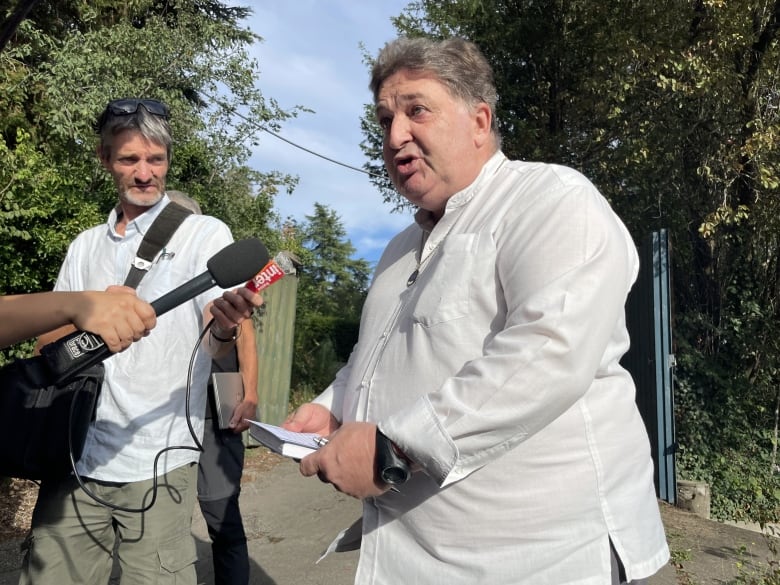
Gruber said the Oblates expressed to delegates Wednesday that they believe it’s important Rivoire stand trial “as much for the presumed victims, the Inuit people, but also for all the missionaries from the Oblates and the Catholic Church.”
Gruber said the Oblates plan to reach out to the Vatican next to see if they can put more pressure on Rivoire to return.
He said it was very difficult to get Rivoire to meet with victims because of his health and other reasons, but he eventually agreed to do so.
“It was very important for us that Rivoire listens to the presumed victims, because it’s his duty … We are happy that we insisted and he said yes,” Gruber said.
“We know that it doesn’t solve everything — we have a lot of work to do together.”
France still working with Canada, says justice ministry
The meeting with the Oblates comes a day after delegates had what they described as a disappointing meeting with French officials.
In that meeting, which did not involve France’s justice minister, delegates said they heard that extraditing Rivoire to Canada would violate France’s constitution, and that he couldn’t be tried in France on Canadian charges because the statute of limitations for the charges would have run out under French law.
Inuit leaders met with French officials in Paris to press for the extradition of ex-priest, Johannes Rivoire, who is facing charges of abuse in Nunavut. CBC Nunavut’s Teresa Qiatsuq met afterwards with Nunavut Tunngavik’s Aluki Kotierk, who said she is frustrated at the lack of political will in France to send this man to justice.
In a statement Wednesday, the French Ministry of Justice said the practice of not extraditing nationals is part of France’s “constitutional tradition.”
However, the ministry added, France has been working closely with Canada and has requested “all the elements necessary to establish the facts and to interrupt the period of limitation of public action.”
The ministry said France is ready to respond to any request for mutual legal assistance from Canada.
Complete Article ↪HERE↩!

